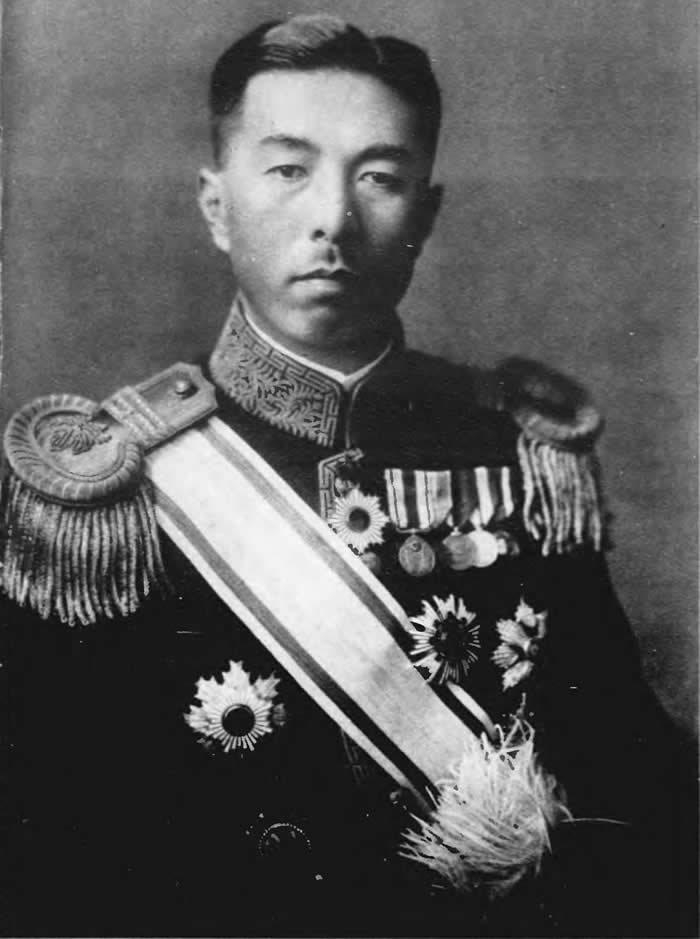 |
| Konoe Fumimaro |
Prince Fumimaro Konoe was born into the aristocratic Fujiwara clan and studied at Tokyo Imperial University and Kyoto Imperial University, graduating from the law faculty of the latter institution in 1917.
In his political career he was a protégé of Saionji Kinmochi, a member of the court aristocracy who served two terms as prime minister. Early in his political career Konoe attended the Paris Peace Conference and later criticized the conference as an attempt by Western nations to preserve their already considerable spheres of influence.
Konoe's status as a prince allowed him membership in the upper house of the Japanese Diet (house of peers), where he served as vice president and then president. He first became prime minister of Japan in June 1937 and would serve three times in that post. Konoe was a moderate like his mentor Saionji and was particularly concerned with tempering the power of the military.
 |
 |
However, after the Marco Polo Bridge incident led to the outbreak of an undeclared war between China and Japan, Konoe's unsuccessful attempts to end that conflict contributed to the downfall of his cabinet in 1939. Konoe was reappointed prime minister in July 1940 and was involved in intense negotiations with the United States, hoping it could act as a mediator in the conflict between Japan and China on terms favorable to Japan.
He also negotiated a nonaggression pact between Japan and the Soviet Union in 1941. Konoe resigned as prime minister in October 1941 in favor of the war minister, General Hideki Tojo, and was not centrally involved in the Japanese government again until the conclusion of World War II.
After Japan's surrender in August 1945, Konoe served in the government of Prince Naruhiko Higashikuni. Konoe took his own life with potassium cyanide after it was announced by the American general Douglas MacArthur, supreme commander of the Allied Forces and supervisor of the postwar occupation of Japan, that Konoe would be tried as a war criminal. It allowed him to evade the disgrace of conviction and execution by hanging. Konoe's grandson, Morihiro Hosokawa, served as prime minister of Japan from August 1993 to April 1994.